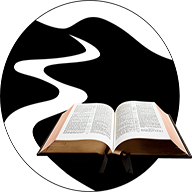Scroll down to see and play Audio.
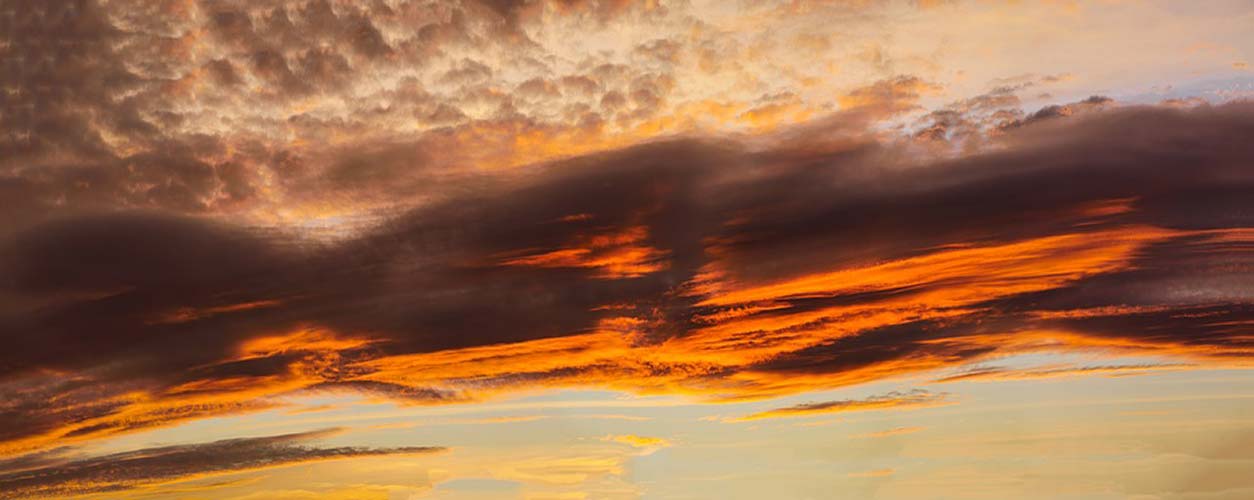
Good morning dear “Walking with Jesus” friends, it’s the weekend again, isn’t it?
Yesterday we finished the wonderful Old Testament story of RUTH.
Next in the Bible chronologically, comes 1 Samuel, which is the very next page in your Bible. It seems to make sense to me, that we continue “Walking with Jesus” through the first few chapters of 1 Samuel, before heading into Easter 2020. Let’s step into the story of Samuel, both in history and geography.
I put in your notes (at the bottom of page) an interesting Bible chronology link which puts the opening of 1 Samuel at about 1130bc or so, and the birth of Samuel at about 1120bc, and shows you several other significant historical dates of that time:
When we read the Old Testament, it’s often helpful to see a map of the region at that time, to gain some perspective and put ourselves in the story. I’m including for you, a map of the area we know today as Israel, in the days of the prophet Samuel. Four immovable reference points always help us when looking at a map of Israel, regardless of the era of history:
1. The Mediterranean Sea to the west
2. Dead Sea to the south
3. The Sea of Galilee to the north
4. The Jordan river running south between the two ‘seas’ which are really ‘lakes’, and this river often forms the border of Israel to the east.
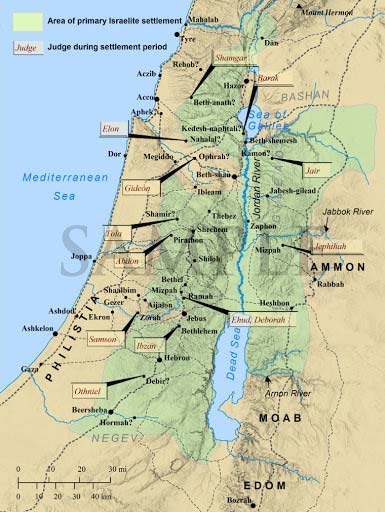
In the days of Samuel the area along the coast of the Mediterranean Sea was occupied by the Philistines, perennial enemies of the descendants of Abraham, Isaac and Jacob, known as the ‘children of Israel’ or the Hebrews.
Notice please the dotted line road running north-east from Beersheba, in the southern Negev desert area. The phrase often repeated in the Bible, “From Dan to Beersheba”, (Judges 20:1)was the way the Hebrew people referred to the north-south reaches of Israel. Beersheba was the southern most town, Dan the northern most town. Let’s take a journey north on that desert road, beginning in the town of Beersheba, to better understand the life and times of Samuel.
It’s a very rugged, rocky road, usually traveled under blazing hot sun. Walking away from Beersheba, after about 25 miles, we would come to the town of Hebron, which you may remember was the burial place of Abraham and Sarah, Isaac and Rebekah, Jacob and Leah (Gen. 49:29-33). Now how long do you suppose it would take you to walk 25 miles in the hot sun?
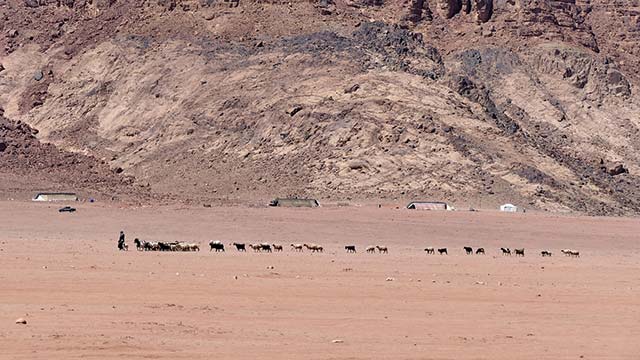
Continuing along that road, in about 12 miles or so we’d next come to Bethlehem, where the story of Naomi, Ruth & Boaz took place.
Continuing north from Bethlehem only 6 miles or so, we’d come to the town of Jebus, which a few years later was captured by King David and renamed Jerusalem. Of course that became the most famous city in the Bible and is profoundly important in Israel’s history.

Continuing north on the desert road from Jebus in only about 5 miles, we’d come to the town of Ramah, Samuel’s hometown (1 Samuel 7:17) and next, only two miles further north, we’d come to the town of Mizpah, which will figure prominently in Samuel’s story.
Continuing our journey north we’d come to Bethel, which appears frequently throughout the Old Testament story of Israel. Remember that place in the life of Jacob? It’s where he spent the night fleeing from his family. Weary, he laid down on the ground to sleep, had a dream of a ladder reaching to him from heaven, and God speaking His covenant promise to Jacob. In the morning Jacob took the rock he’d used as a pillow, stood it up and poured oil on it, and proclaimed this place Bethel, “the house of God” (Genesis 28:18,19).
20 years later, Jacob returned to this place with his very large family (four wives and 11 children) as we see in Genesis 35. They were traveling south from the area where Jacob had lived for all those years, working for his uncle Laban. Jacob had grown wealthy in flocks and herds and was returning home to the area of his boyhood. Rachel, the love of his life, died on that journey giving birth to Benjamin, and Jacob buried her along the road we’re traveling, near Bethlehem (Gen. 35:16-20).
As we continue north on our desert road journey from Bethel, we next come to Shiloh which we find in our opening verses of 1 Samuel today, as the place where Elkanah and his family went to worship, at the Tabernacle of God each year.
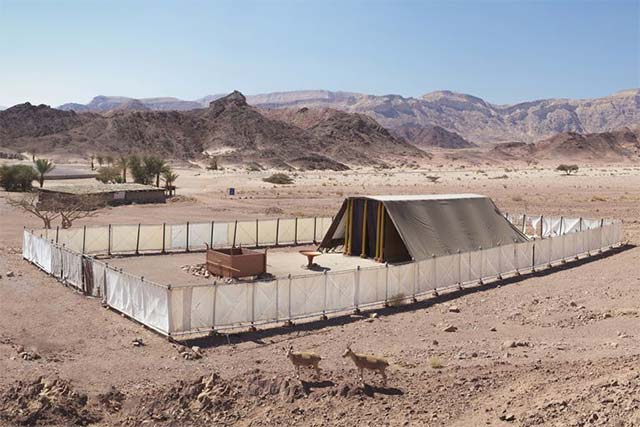
This picture is an actual, modern day re-construction of what the Tabernacle site would have looked like at Shiloh. This was the same Tabernacle Moses and the fleeing Hebrew slaves had fabricated in the desert (Exodus 35-40). It had been brought into the Promised Land with Joshua and erected here at Shiloh (Joshua 18:1,2).
Our story of Samuel opens with a Mr. Elkanah and his family traveling on this dusty road from their home in Ramah to Shiloh for their annual worship trip. “Elkanah had two wives; one was called Hannah and the other Peninnah. Peninnah had children, but Hannah had none. Year after year this man went up from his town to worship and sacrifice to the LORD Almighty at Shiloh” (1 Samuel 1:2,3)
We don’t know exactly what time of year, but it was an annual pilgrimage. Please don’t let Elkanah’s polygamy trouble you. While it is God’s intention that marriage is one man with one woman for a life time, in these ancient times God had permitted a man to have multiple wives for what we might call humanitarian reasons. If a woman was unable to bear children, that meant the couple’s family line would cease with their death.
It also meant the hard work necessary for living was shared by only the husband and wife. It was very difficult for daily living with only two people, since everything, everyday was laborious. Water needed to be fetched, grain ground for flour for baking bread, sticks gathered for making a fire, animals tended, clothes made etc. Children and or servants were essential to help with the work needed to survive.
Also, life was essentially impossible for a person alone, especially a woman. Thus, if a married woman was found to be barren, unable to bear children, her husband faced two choices. Divorce her, discarding her as worthless and destine her to slavery or begging for survival, or remain faithful to their marriage vows, love and care for her. But what about children? God had permitted married Hebrew men in this case to bring another woman into the family as a second wife, primarily for the purpose of having children and building a family heritage.
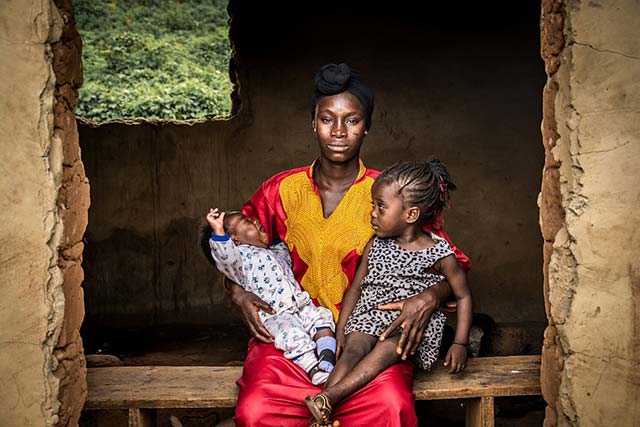
Now, our human nature being what it is, we can easily imagine the jealousy and competition between these two women, for the love of their shared husband, right? This would only increase if one of the two wives began to bear children, while the other remained barren. This was the unhealthy, painful atmosphere of Elkanah’s home and you’ll see it described quite graphically in 1 Samuel 1:5-7. “But to Hannah he (her husband Elkanah) gave a double portion, because he loved her, and the LORD had closed her womb. And because the LORD had closed her womb, her rival (Peninnah) kept provoking her in order to irritate her. This went on year after year. Whenever Hannah went up to the house of the LORD (the Tabernacle at Shiloh), her rival provoked her till she wept and would not eat.”
Do you see an interesting, twice repeated phrase here? “The LORD had closed her womb.” Does that sound harsh? Does it sound punitive, as though God was pouring out some judgement on Hannah? In this time in history, and even now in many parts of the world where I have lived or travel, people view life much differently than we in North America today. People like Elkanah and Hannah view EVERYTHING that happens in life as being DIRECTLY connected to God and His Sovereign authority over our universe and life. Therefore in their understanding, Hannah’s infertility was not a medical issue, not a genetic issue, it was a reality which had spiritual reasons.
In their view, God, for some reason, had not allowed Hannah’s womb to be fertile. He had not blessed her with the ability to become pregnant and bear children. Thus each year when they came to worship, infertility was at the top of their prayer list, and Hannah evidently, spent hours at Shiloh pleading with God that He would intervene and change their reality, fix their infertility, and bless them with children. Do you know anyone today who carries this heavy burden of infertility?
As we close today, let’s stand alongside Hannah as she pours our her heart to God in one of her agonizing prayer times at Shiloh… “In bitterness of soul Hannah wept much and prayed to the LORD. And she made a vow saying, “O LORD Almighty, if you will only look upon your servant’s misery and remember me, and not forget your servant but give her a son, then I will give him to the LORD for all the days of his life…” (1 Samuel 1:10,11)
Have you ever been there my friends? In such a deep, dark place of despair that you offer God a deal, a promise, if He will respond to your prayer and intervene in your desperate situation? Have you ever experienced the miraculous intervention of God in your desperation? We saw it in the story of Ruth, and we’ll see it again, several times in the story of Hannah. God has included these actual historical events in our Bible to help us know God, help us understand how God engages with us in our human journey.
So, what is your understanding of God’s direct involvement in the practical reality of your life. Every breath you take, every heartbeat… is that just how your body works, or is that the evidence of God keeping you alive every moment? As we listen to Hannah’s sobs and her prayer, I invite us each to spend some time thanking God for His direct involvement in every aspect of our lives, and lift up before Him, those whom you may know who grieve their inability to bear children. Tomorrow, we’ll rejoin the Elkanah, Hannah and Penninah at Shiloh.
Oh LORD Almighty, You are the very same God Hannah prayed to in that Tabernacle at Shiloh that day, and we come to You today thanking You for life You have given to us. . .
Have a comment or question about today’s chapter? I’m ready to hear from you, contact me here.
 Pastor Doug Anderson 262.441.8785
Pastor Doug Anderson 262.441.8785
“Let us run with perseverance the race marked out for us, with our eyes fixed on Jesus…” (Heb. 12:1,2)
Archived back issues of “Walking with Jesus” and other resources are available by clicking here to open our ‘home page’ (or go to HOME at upper right of this page).
Share with friends. Subscribe below for daily “Walking with Jesus”.
